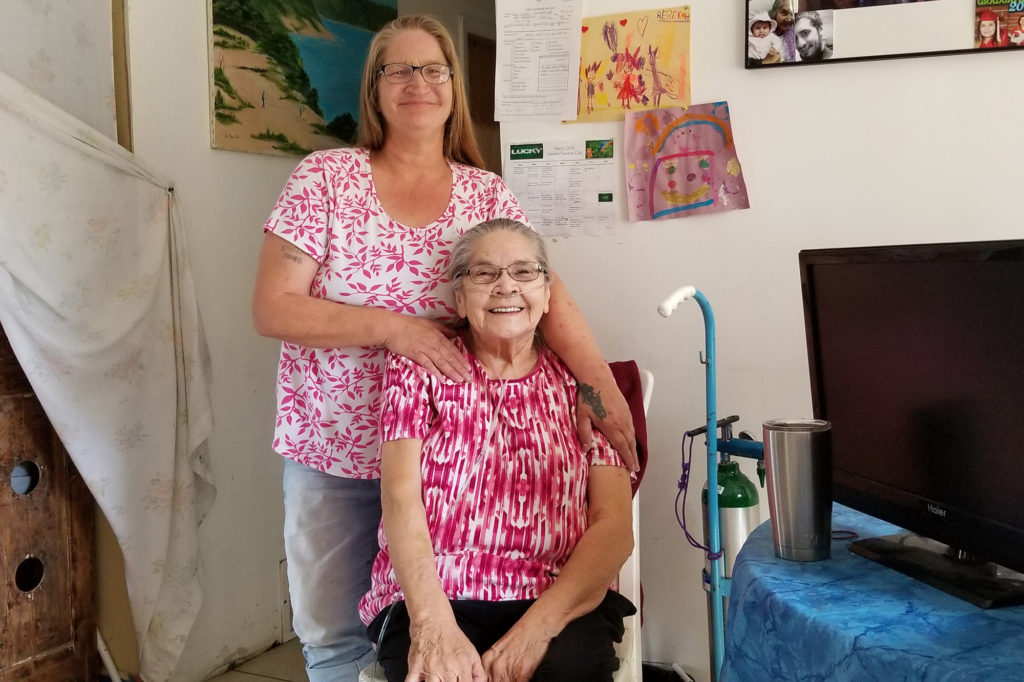
Ruby Ogemagegedo is glad for the extra money in her purse, as are her four-legged friends.
“I’m saving $32 a month on my electric bills this summer, and that covers the costs of food for my five little dogs,” said Ogemagegedo.
The savings come thanks to Cherryland Electric Cooperative, which is helping low-income members reduce their utility bills with a combination of weatherstripping upgrades and solar bill credits.
Ogemagegedo is on a fixed income, and when winter bills mounted and she fell behind in her monthly utility payments, Cherryland EC contacted her about energy efficiency improvements and access to renewable energy for low-income members.
“I was starting to really panic. Just knowing I could save $30 to $40 a month on my electricity bill makes things a lot easier,” said Ogemagegedo, 82, who has belonged to the Grawn, Michigan-based co-op since buying her home 33 years ago. “It means that I don’t have to worry about how my dogs are going to eat.”
Cherryland’s program was developed with an $80,000 grant from the Department of Energy’s Clean Energy for Low Income Communities Accelerator program made available to the Michigan Agency for Energy. The co-op also budgeted $100,000 to fund additional solar panels for the program.
The Northwest Michigan Community Action Agency completed weatherization on homes enrolled in the pilot project with funds from LIHEAP, the Low Income Home Energy Assistance Program.
“This program serves a segment of our membership that often gets left behind in the move toward renewable energy and energy efficiency,” said Tony Anderson, the co-op’s general manager. He said the goal of the program is to help provide vulnerable members with more energy independence.
About 50 low-income members have received low-cost energy efficiency products, including LED lightbulbs and weatherstripping. They receive no-cost subscriptions to the co-op’s community solar program, reflected in monthly bill credits.
Combining energy efficiency and renewable energy initiatives takes the sting out of participation by members with limited resources who have trouble affording the upfront costs of improvements. Local officials supporting the project have said that low- to moderate-income families spend about 7 percent of their income on energy costs, and Cherryland’s program should make energy bills more affordable.
“We should see a decrease in participating members leaving unpaid bills or getting disconnected,” said Tammy Squires, a Cherryland energy adviser. “It’s a win for the state and all of our taxpayers because we should see a decrease in reliance on energy assistance dollars.”
Derrill Holly is a staff writer at NRECA.